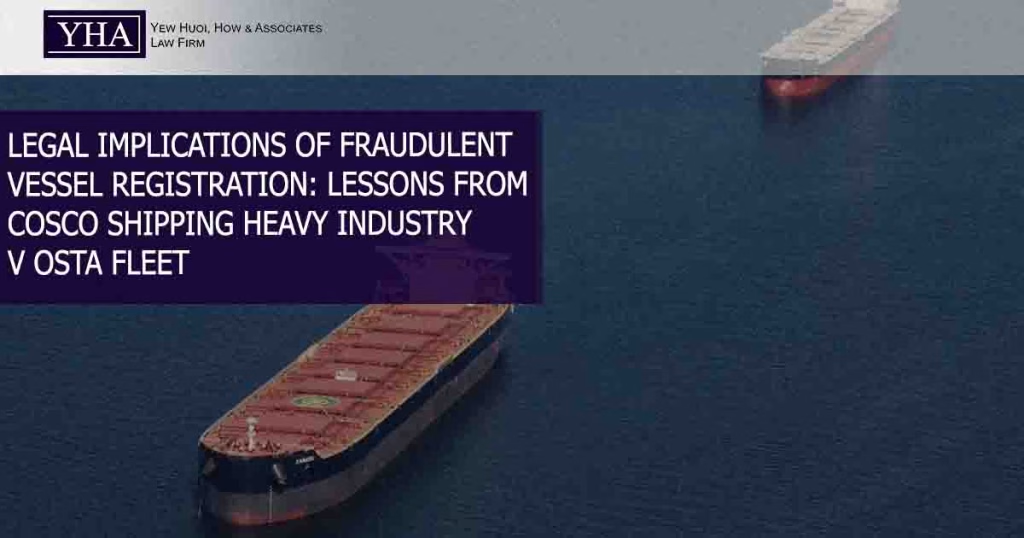Summary and Facts
Cosco Shipping Heavy Industry (Dalian) Co Ltd & Anor v Osta Fleet Sdn Bhd primarily regards an ownership and registration dispute over the vessel “Dalian Developer”. The Plaintiffs, Cosco Shipping Heavy Industry and Dalian Developer Drilling Co. Ltd, constructed and owned the “Dalian Developer” vessel. The vessel was registered under Osta Fleet’s name without the Plaintiffs’ knowledge, though they claim ownership. The Plaintiffs claim the registration of the vessel under Osta Fleet was done fraudulently without their authorization and seek deregistration. The Defendant, on the other hand, asserts the registration was legitimate and done as per contractual arrangements, including a technical agreement to convert the vessel for Malaysian waters to secure contracts with Petronas.
Legal Issues
- The central issues include whether the vessel’s Builder’s Certificate used for registration was forged and whether the Defendant’s registration was lawful under the Merchant Shipping Ordinance 1952.
Court Findings
- A significant part of the court’s conclusion rested on forensic analysis of the Builder’s Certificate, which is a crucial document required for the registration of a vessel. The Plaintiffs alleged that the certificate, which Osta Fleet used to register the vessel, was forged.
- The court relied on expert testimony and forensic analysis that examined the document’s physical and digital characteristics, comparing it with authentic versions. The analysis uncovered inconsistencies in the signatures, dates, and formatting of the certificate.
- The expert found clear signs of tampering and falsification, indicating that the document was not issued by the Plaintiffs and had been altered to reflect false ownership details.
- The court carefully examined the Merchant Shipping Ordinance (MSO) and noted that the Defendant failed to follow the prescribed registration protocols. Specifically, the vessel was registered under Osta Fleet without proper authorization from the rightful owners (the Plaintiffs).
- The MSO requires proper documentation, including a legitimate Builder’s Certificate, to be presented for the vessel’s registration. Since the certificate was proven to be fraudulent, the entire registration process was deemed invalid.
Procedural Recommendation while Registering Vessel
When registering a vessel in Malaysia, it’s essential to avoid scams by conducting thorough due diligence, using professional verification, ensuring secure communication, employing fraud detection tools, having clear contract terms, and maintaining legal safeguards and regular audits.
Reference Legislation & Cases
a. Cosco Shipping Heavy Industry (Dalian) Co Ltd & Anor v Osta Fleet Sdn Bhd [2024] MLJU 2250
b. Dan-Bunkering (Singapore) Pte Ltd v The Owners of The Ship or Vessel “Pdz Mewah” (IMO No.: 9064009) of Port Klang & Anor [2020] MLJU 1574
c. Merchant Shipping Ordinance 1952

